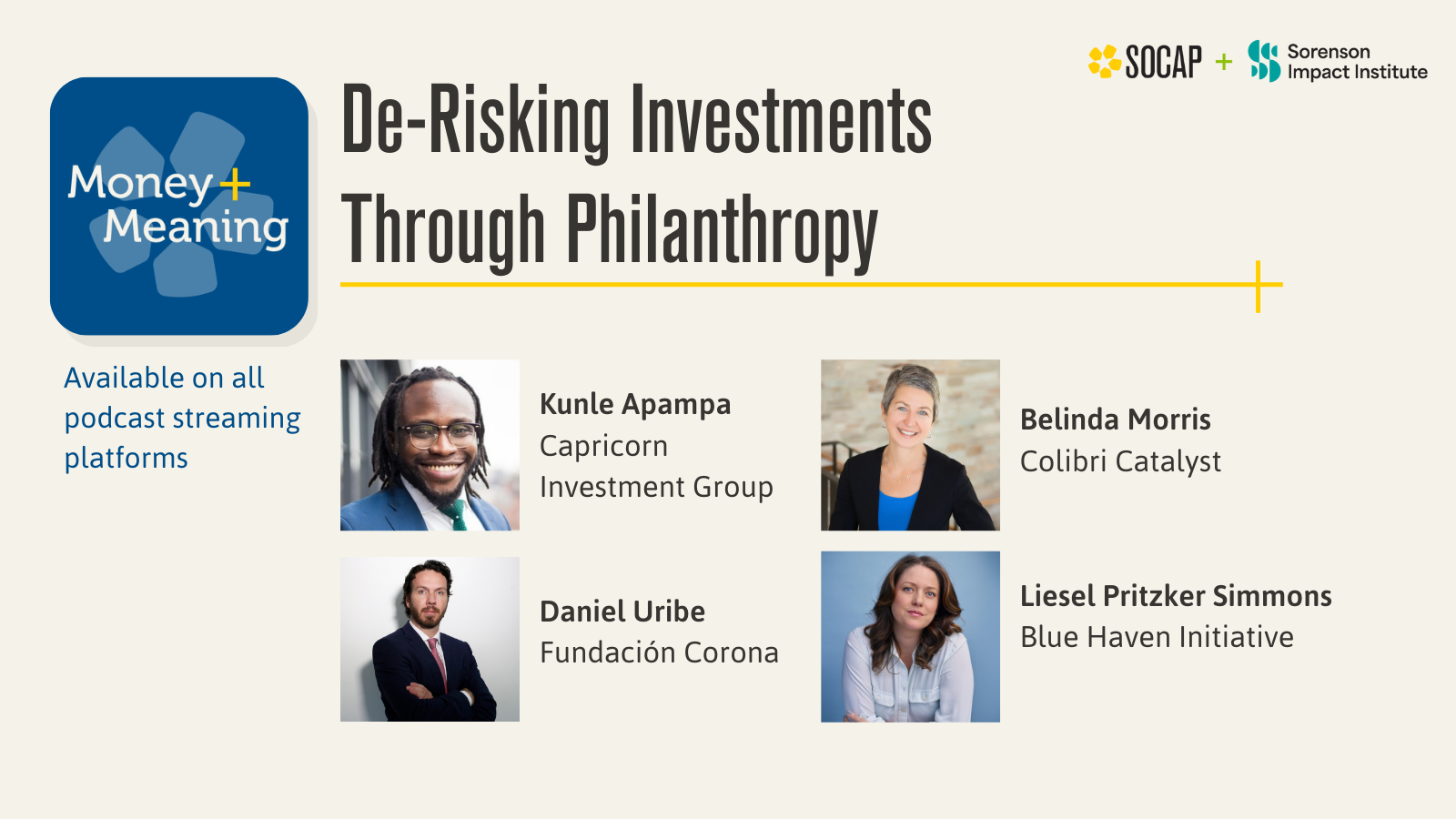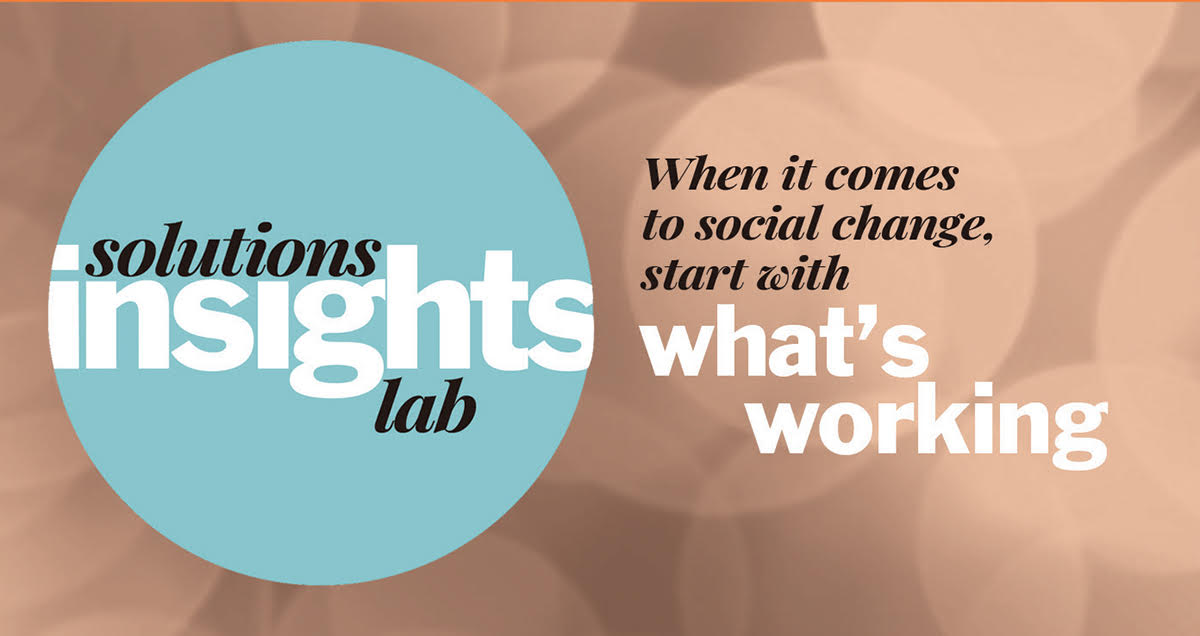A Money + Meaning Podcast with Belinda Morris of Colibri Catalyst, Daniel Uribe of Fundación Corona, Liesel Pritzker Simmons of Blue Haven Initiative, and Kunle Apampa of Capricorn Investment Group
Philanthropic funding can serve as a tool to reduce risks in blended finance projects and attract more private investment for sustainable development. As part of a collaborative approach, grants and project financing help innovative opportunities become investment-ready and take steps toward impact at scale.
A new episode of Money and Meaning features a conversation recorded at SOCAP23 that highlights specific, actionable examples of private capital used to catalyze market-driven solutions. This podcast episode features:
- Belinda Morris, Co-Founder of Colibri Catalyst
- Daniel Uribe, Executive Director of Fundación Corona
- Liesel Pritzker Simmons, Co-Founder and Principal of Blue Haven Initiative
- Kunle Apampa, Head of Client Solutions & Partnerships at Capricorn Investment Group, Moderator
Apampa said a collaborative approach can help align philanthropic impact objectives with prudent investment management objectives. His work at Capricorn Investment Group includes working with program and philanthropic teams to identify innovative ways to catalyze thematic areas into investment opportunities. That often means trying new approaches: “Don’t let perfection be the enemy of progress,” he said.
At Blue Haven Initiative, Pritzker Simmons manages a large investment portfolio that is 100% focused on impact — financial, social, and environmental. This includes warehousing deals for first-time fund managers in Sub-Saharan Africa, who typically face challenges raising funds without a track record. “The terms are not necessarily philanthropic, but the risk to us is,” she said. “That’s an example of kind of how we saw a gap — inspired by the world we want to see — in our market rate portfolio. But then we were allowed to help to fill it because we budgeted for it in our philanthropic portfolio.”
Like Apampa, she pointed to the importance of collaboration for this type of approach, which she said was a team exercise between Blue Haven’s investment and catalytic capital teams. “We’re coming at this kind of from a market standpoint, not from like, ‘Oh, let’s just do a nice thing for people.’ … We want to see the sector succeed, and we need lots of proof points in order for that to happen.”
Across the Atlantic Ocean at Fundación Corona, Uribe helps guide the family foundation’s work to develop a more equitable society. The foundation’s holistic approach involves knowledge, tools, and advocacy to drive and scale change.
Workforce development is one area of focus for the foundation, which employs philanthropic and catalytic capital to build capacity in flexible ways that advance its long-term vision. “We saw that there was the opportunity to start using results-based finance mechanisms,” Uribe said, noting that a collaborative approach helps align incentives among varied stakeholders such as the public sector, investors, and service providers. “It’s trying to make this type of bet in order to invite others, and trying to see this systemic change into the long term.”
The catalytic potential of philanthropic capital inspired Morris to move from a role in philanthropy to her work at Colibri Catalyst, which aims to improve the flow and performance of private investment in sustainable land use and nature-based solutions. “We believe that strong intermediary vehicles and scalable enterprises play a really important role in getting private capital to nature-based solutions on the ground,” she said.
Collaboration is vital to tap into the full potential of catalytic capital in nature-based solutions, which often involve new, high-risk business models and early-stage funds. “A lot of the risk is the unknown.”
Colibri Catalyst uses grant capital to help strengthen capacity and develop business models. “On the other side, the program-related investment is really important where you can provide a concessional return, you can reduce the cost of capital, and you can enable interesting innovation in terms of conservation outcomes,” Morris said. “There’s a lot of creativity that can be looked at with philanthropic capital whether you’re investing or grantmaking.”
Learn more about these philanthropic funding approaches in the full Money + Meaning podcast.
Don’t miss out! Subscribe to Money + Meaning on Apple Podcasts, Stitcher, TuneIn, Spotify, or anywhere else you find podcasts.






